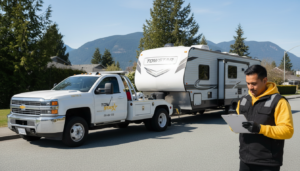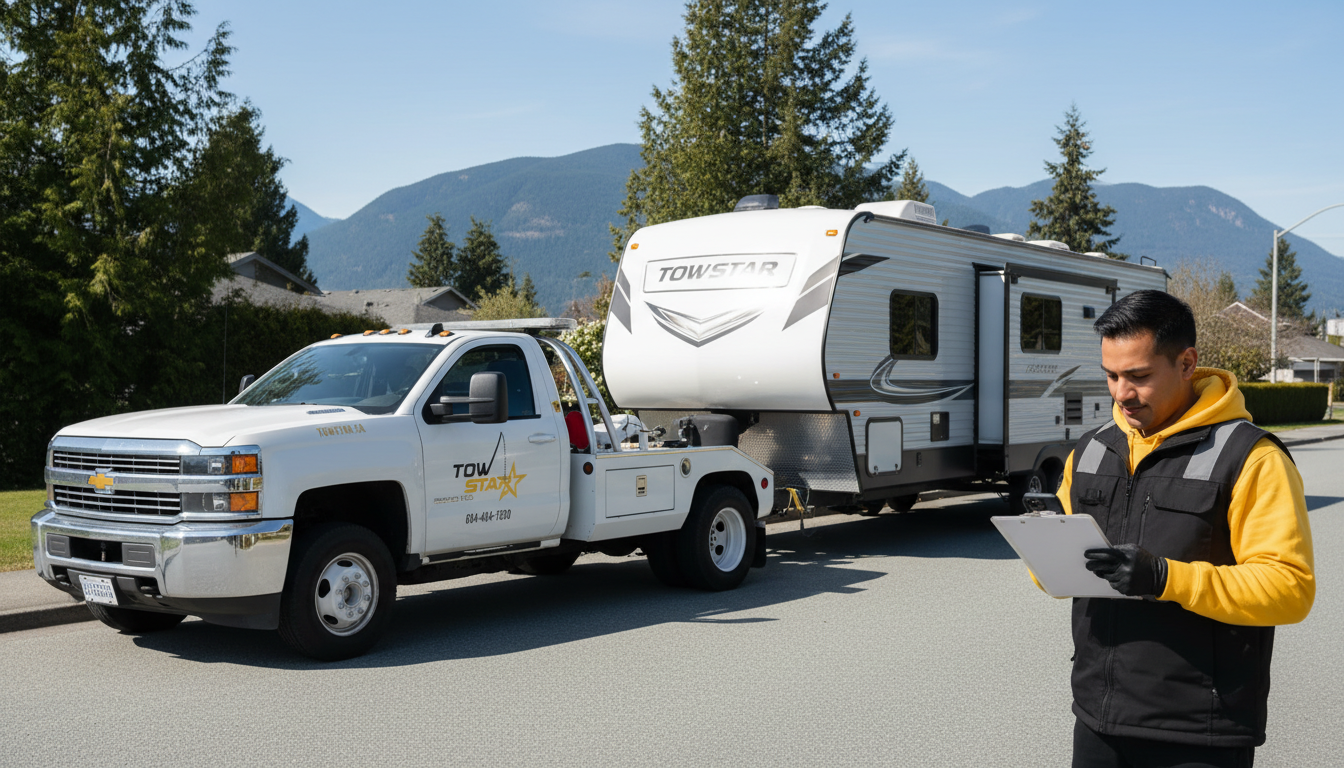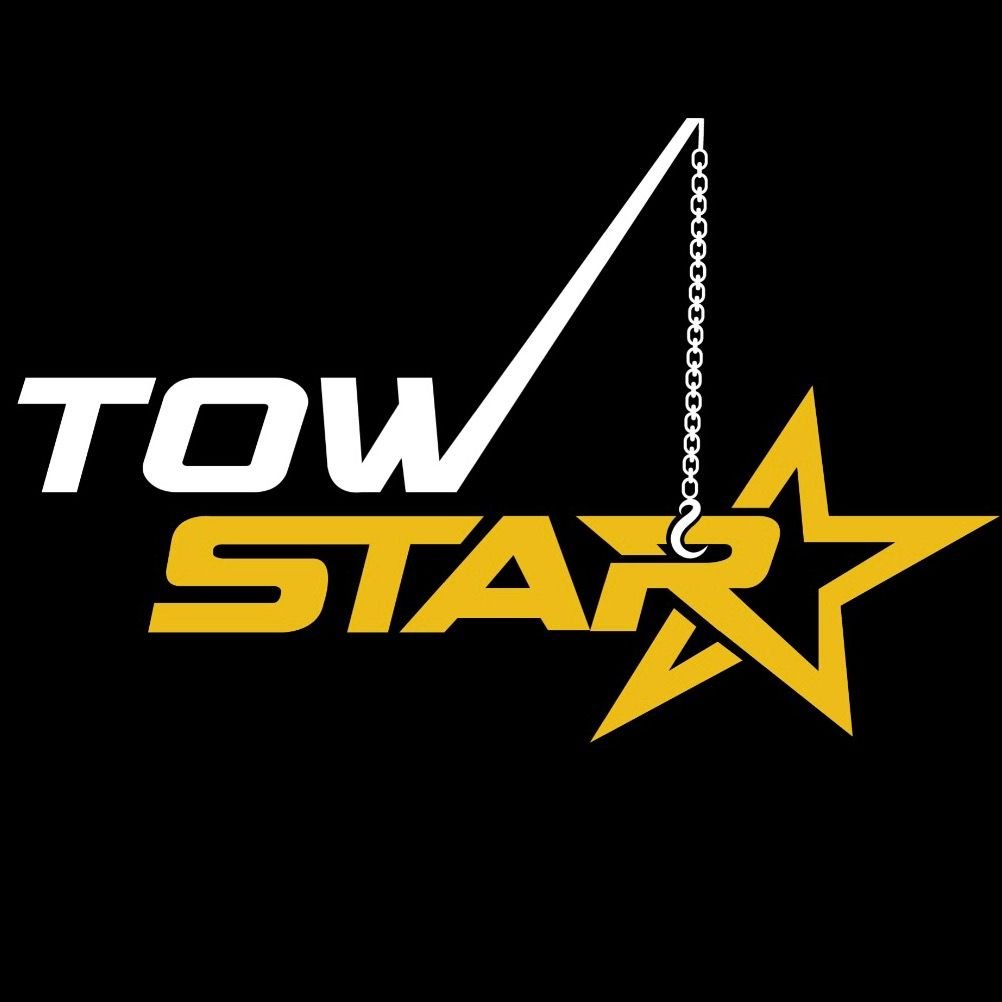Exploring RV hauling rates in Canada can be tricky. Whether you’re moving a recreational vehicle across provinces or to a favourite camping spot, knowing the costs is key for those watching their budget. Several factors influence these rates, including the size and weight of the RV, distance traveled, and the specific services provided by the hauler. To get an accurate estimate, it’s essential to compare quotes from different companies, as rv hauling rates in Canada can vary significantly. Additionally, factoring in any potential extra costs, such as insurance or tolls, will help ensure that you stay within your financial plan. It’s also important to keep in mind that seasonal demand can affect rv hauling costs in Canada, with prices often rising during peak camping months. Furthermore, opting for additional services, such as expedited shipping or specialized handling, can further impact overall expenses. By conducting thorough research and planning ahead, you can find a solution that meets both your needs and budget. When looking into RV hauling options, it’s also wise to investigate used RV hauling rates in Canada, as these can sometimes offer more budget-friendly alternatives. Additionally, reaching out to local hauling companies for any specials or promotions can yield positive results and further assist in managing costs. By staying informed and considering various options, you can secure the best deal for your RV hauling needs. It’s also beneficial to familiarize yourself with industry trends and fluctuations in rv hauling rates in Canada, as these can provide insight into the best times to schedule your move. Keep an eye on reviews and customer feedback regarding haulers, as a company’s reputation can significantly influence both service quality and pricing. By staying proactive and informed, you can maximize your budget and ensure a smooth RV transportation experience.
RV owners in Canada face special challenges when moving their vehicles. The vast Canadian landscape means distances can range from short to very long. Every kilometre adds to your overall cost.
The size, weight, and where you’re going all affect transport costs. Haulers look at many factors to set their prices. This ensures you get clear and fair service.
Key Takeaways
- RV hauling rates vary based on distance and vehicle specifications
- Professional transport services provide detailed pricing models
- Knowing regional differences helps with budgeting
- Insurance and extra fees are important to consider
- Being prepared can greatly lower transport costs
Understanding RV Hauling Rates in Canada
Exploring rv relocation services in Canada can be tricky. If you’re moving your RV, knowing what affects the cost is key. RV owners in Canada face special challenges when they move their vehicles.
The cost to move RVs changes based on several important factors. Towing companies look at these factors to give you a fair price. This way, you know exactly what you’re paying for.
Key Factors Influencing RV Hauling Costs
- Vehicle size and weight
- Total transportation distance
- Seasonal demand fluctuations
- Specific route complexity
- Special handling requirements
Looking into towing rates in British Columbia shows big price differences. For example, RV towing in Vancouver can cost between $135 to $150 per hour.
Types of RV Hauling Services
| Service Type | Description | Typical Use |
|---|---|---|
| Local Towing | Short-distance transportation | Within city or regional moves |
| Long-Distance Hauling | Cross-provincial transportation | Relocating RVs between provinces |
| Specialized RV Transport | Custom handling for unique vehicles | Luxury or vintage RV movement |
Knowing about these services helps you choose the right one for your RV move. Each service has its own benefits, fitting different needs and budgets.
Common Pricing Models for RV Hauling
When planning to move your RV over long distances, knowing about pricing models is key. Different services have different ways of billing. This can greatly affect how much you’ll pay for transport.
Flatbed RV transport has complex pricing based on several factors. RV hauling companies usually use two main ways to figure out costs.
Per Mile Rates: Breaking Down the Costs
Per mile rates are the most common way RVs are priced. The cost per mile can be between $3 to $5. This depends on a few important things:
- Total distance of transportation
- Size and weight of the recreational vehicle
- Current fuel prices
- Complexity of the route
Flat Rate vs. Mileage Billing
RV owners have two main choices for billing:
| Billing Method | Advantages | Potential Drawbacks |
|---|---|---|
| Per Mile Rate | Precise tracking of actual distance | Can be more expensive for longer routes |
| Flat Rate | Predictable total cost | May not account for route complexity |
Knowing about these pricing models helps you make better choices for your RV transport. It ensures you pick the best option for your needs.
Factors Affecting RV Hauling Rates
When planning to move your RV across the country, it’s important to know what affects the cost. The price isn’t just a flat rate. It’s influenced by many factors that can change the final cost a lot.
Several key factors play a role in figuring out RV shipping costs in Canada. Understanding these can help you plan your budget better and avoid surprises.
Distance and Location Impact
The distance of your RV’s journey affects the price. Longer trips cost more. Remote areas can make things more complicated because of:
- Limited accessibility
- More fuel needed
- Special route planning
- Challenges from road conditions
RV Size and Weight Considerations
The size and weight of your RV greatly impact the cost. Bigger and heavier RVs need special equipment. This can add $100 to $250 to the bill.
- Class A motorhomes cost more to transport
- Fifth-wheel trailers might need custom handling
- Oversized RVs require special permits
- Weight determines truck and trailer needs
Knowing these details can help you get better RV shipping quotes. It also helps plan your cross country RV transport better.
Average RV Hauling Rates Across Canada

Knowing the cost of moving your RV is key for planning your next trip. Professional RV haulers offer important services across Canada. Rates change a lot based on several important factors.
RV towing companies set their prices based on many things. These include the region and the season. Knowing these can help you plan your RV move better.
Regional Pricing Differences
Canada’s big size makes moving RVs a challenge. Prices change a lot between provinces. This is because of several reasons:
- Distance between where you start and where you go
- The quality of the roads
- How much fuel costs locally
- The number of people living in the area
Seasonal Rate Variations
Professional RV haulers change their prices with the seasons. Summer is usually the busiest time. This means prices go up.
| Season | Average Rate per Mile | Demand Level |
|---|---|---|
| Summer (Peak Season) | $3.50 – $4.25 | High |
| Spring/Fall | $2.75 – $3.50 | Medium |
| Winter | $2.25 – $3.00 | Low |
Booking your RV move during the off-season can save you a lot of money. By knowing the price changes based on where and when you move, you can plan better.
Hidden Costs of RV Hauling Services
When planning RV transport costs in Canada, it’s key to know about hidden fees. Many RV owners face unexpected charges that can raise their costs. Being aware of these extra costs helps you plan better and avoid financial stress.
Additional Fees to Watch For
RV transport services sometimes have surprise charges. Here are some costs to expect:
- After-hours service charges: $50 to $100 extra
- Fuel surcharges based on current diesel prices
- Special equipment handling fees
- Loading and unloading costs
- Tolls and highway permit expenses
Insurance and Liability Considerations
Protecting your RV during transport is important. Not all services offer full coverage. You should check what’s covered:
- Full replacement value of your RV
- Interior damage during transport
- Personal belongings inside the RV
- Specialty modifications or upgrades
Always ask for a detailed insurance breakdown before booking. Knowing about liability can prevent financial problems later.
Finding Reliable RV Hauling Companies
Choosing the right RV hauling service in Canada is key. It affects the safety and smooth transport of your RV. Here’s how to find trustworthy professionals who will care for your RV.
Researching Licensed and Insured Haulers
When looking for a reliable RV hauling service, check their credentials. Look for:
- Valid provincial transportation permits
- Current commercial insurance coverage
- Specialized RV transportation certifications
- Clean safety inspection records
Reading Customer Reviews and Testimonials
Customer experiences offer valuable insights into a hauling company’s reputation. Look for:
- Consistency in positive feedback
- Specific details about handling and professionalism
- Response to issues or challenges
- Overall customer satisfaction levels
Pro tip: Check multiple platforms like Google Reviews, industry forums, and social media. This gives a full view of the service’s performance. Don’t rely on just one source – compare to make a good choice.
The Benefits of Hiring Professional Haulers
Transporting an RV can be a complex and stressful experience for owners. Professional flatbed rv transport services offer more than just moving your vehicle. They provide a full solution.
Choosing a professional long distance rv hauling service has many benefits. It saves you time, money, and stress. These experts know how to safely move large vehicles over different terrains and distances.
Expert Handling and Safety Assurance
Professional haulers have the skills to protect your valuable RV during transport. They have:
- Specialized equipment for secure vehicle loading
- Experienced drivers trained in RV transportation
- Comprehensive insurance coverage
- Advanced securing techniques to prevent damage
Saving Time and Reducing Stress
When you hire professionals for rv transport, you avoid many logistical challenges. They handle all transportation aspects. This lets you plan your trip or relax without worrying about your vehicle’s movement.
Professional RV hauling offers many benefits. It reduces your driving time, lowers road risks, and ensures your RV arrives safely. The peace of mind it brings is priceless for RV owners.
Tips for Reducing RV Hauling Costs

Traveling with an RV across the country can be pricey. But, smart RV owners find ways to cut down on costs. Learning about rv shipping quotes is key to saving money on your RV trip.
Smart planning and making the right choices can lower your RV transport costs. By using a few simple strategies, you can make your RV trip more affordable.
Preparing Your RV for Transport
Getting your RV ready for transport is important to avoid extra fees. Here are some important steps:
- Remove all loose items inside the RV to prevent damage
- Perform a thorough mechanical inspection before transport
- Ensure all windows, doors, and compartments are securely closed
- Check tire pressure and battery condition
- Document existing vehicle condition with detailed photographs
Booking Off-Peak for Better Rates
The time you book your RV transport can affect the cost. Companies often charge less during off-peak seasons. Here are some tips:
- Schedule your RV transport during winter months
- Avoid peak summer travel periods
- Request multiple quotes to compare pricing
- Be flexible with your transportation dates
By following these tips, you can save a lot of money on your RV trip. Smart planning is key to reducing shipping costs.
Understanding Insurance Coverage for Hauling
Getting insurance for RV transport can seem like a big puzzle. Professional RV haulers know how important it is to have full protection while moving. Your RV is a big investment, so getting the right insurance is key.
When you look at insurance with RV towing companies, you’ll find several important types. These coverages help keep your RV safe during transport.
Essential Insurance Protection Layers
- Commercial Transport Insurance
- Cargo Protection Coverage
- Liability Insurance
- Comprehensive Physical Damage Coverage
What’s Typically Covered During Transport
Professional RV haulers usually offer insurance that guards against certain risks. Commercial transport insurance covers accidents, but it’s good to know its limits.
| Coverage Type | Protection Scope |
|---|---|
| Collision Damage | Repairs from transportation-related accidents |
| Liability Protection | Legal expenses and third-party damage claims |
| Cargo Insurance | Protection for RV contents during transit |
Keep in mind, standard insurance doesn’t cover normal wear and tear on the road. Always talk about the details with your chosen RV towing companies. This way, you can make sure your RV is fully protected.
The Future of RV Hauling in Canada
The RV hauling scene in Canada is changing fast. New tech and shifting transport needs are driving this change. As more people want to move their RVs, new ways of doing it are emerging. This evolution opens up opportunities for various businesses and individuals alike. As the demand grows, so do the rv transport jobs in Canada, catering to both private owners and rental companies seeking reliable transportation. Embracing these advancements will be crucial for staying competitive in this rapidly changing landscape. The rise of electric and autonomous vehicles is also beginning to influence the rv hauling services in Canada, making transportation more efficient and eco-friendly. Additionally, as recreational activities become increasingly popular, the demand for specialized rv hauling services in Canada will likely surge, prompting innovation and diversification within the industry. Businesses that adapt quickly to these trends will not only enhance their service offerings but also improve customer satisfaction and loyalty.
New tech is making RV hauling cheaper and more efficient. Now, RV owners can easily find and compare hauling services online. This makes it easier to get their RVs moved.
Trends Influencing RV Transportation
- Increased use of GPS tracking for real-time vehicle monitoring
- Electric and hybrid hauling vehicles reducing environmental impact
- AI-powered route optimization to minimize transportation costs
- Blockchain technology for transparent pricing and service booking
Innovations in Hauling Technology
| Technology | Impact on RV Hauling | Potential Cost Reduction |
|---|---|---|
| Smart Trailer Systems | Enhanced safety monitoring | 5-10% reduction in insurance costs |
| Automated Loading Platforms | Faster and more precise RV handling | 15-20% time efficiency |
| Predictive Maintenance Technology | Reduced breakdown risks | Up to 25% maintenance savings |
Canadian RV transport companies are getting into the latest tech. They’re working on making hauling better, cheaper, and greener. These changes will make RV hauling more reliable and eco-friendly soon.
Frequently Asked Questions about RV Hauling
Exploring rv relocation services in Canada can be daunting. RV owners often wonder about moving their vehicles across the country. This section aims to clear up common concerns for a hassle-free transport experience.
Typical Timeframes for RV Delivery
Knowing when your RV will arrive is important. The time it takes depends on a few things:
- Short-distance moves (under 500 km): 1-2 days
- Provincial transport (500-1000 km): 2-4 days
- Cross-country hauls (1000+ km): 4-7 days
What to Expect on Haul Day
Getting ready for your RV’s transport day is essential. Haulers will check your RV before moving it to record its condition.
| Preparation Step | Recommended Action |
|---|---|
| RV Cleaning | Wash exterior, remove loose items |
| Documentation | Prepare registration, insurance papers |
| Vehicle Inspection | Check tire pressure, secure external components |
When using professional rv relocation services in Canada, clear communication is vital. Talk about your specific needs to make the experience smooth.
Conclusion: Making Informed Decisions on RV Hauling Rates
Understanding RV transport can seem tough, but you now know how to make good choices. Knowing about long distance RV hauling helps you plan your budget and pick the right service. Your RV is a big investment, so choosing the right transport is key.
Think about the distance, your RV’s weight, and how prices change with the seasons. It’s important to find a balance between cost and service quality. Professional towing services can make your move safe and easy. When searching for help, consider looking up “towing services near me” to find reliable options in your area. Many companies offer specialized services tailored to motorhomes, ensuring that your vehicle is handled with care. By choosing the right service, you can enjoy peace of mind during your move, knowing that professionals are managing the logistics for you.
As an RV owner in Canada, choose licensed, insured experts who know how to move big RVs. Do your homework, get quotes from different companies, and ask lots of questions. This way, you’ll have a worry-free move that keeps your RV safe.
Being prepared is your strongest ally. By knowing about hauling rates and choosing a trusted service, you’ll make your RV move easy and stress-free.
FAQ
How much does it typically cost to haul an RV across Canada?
RV hauling costs in Canada vary based on distance, RV size, and season. On average, expect to pay .50 to .50 per mile for long trips. A trip from Vancouver to Toronto might cost between ,000 to ,500, depending on your RV’s size and weight.
What factors most significantly impact RV hauling rates?
The main factors affecting RV hauling rates are distance, RV size and weight, service type, season, and special handling needs. Larger RVs or those with hard access points cost more to transport.
Are there ways to reduce my RV hauling costs?
Yes! Lower costs by booking during off-peak seasons and preparing your RV well. Being flexible with dates and getting quotes from different services can also help. Proper preparation and avoiding complications can reduce costs.
What additional fees should I watch out for when hauling an RV?
Watch out for hidden costs like fuel surcharges, after-hours fees, insurance, specialized equipment, and remote location fees. Always ask for a detailed quote that includes all possible extra costs.
How long does it take to transport an RV across Canada?
Transport times vary by distance and route. A cross-country trip from British Columbia to Ontario takes 5-7 days. Local trips take 1-3 days. Weather, road conditions, and route challenges can affect delivery times.
Do I need special insurance for RV transport?
Professional haulers have commercial insurance, but it’s wise to keep your own RV insurance during transport. Check the hauler’s insurance and consider extra protection for peace of mind.
What should I do to prepare my RV for hauling?
Secure loose items, check tire pressure, disconnect batteries, seal windows and doors, and document your RV’s condition with photos. Remove personal items and ensure the RV is clean and ready. Inspect it thoroughly before the hauler arrives.
Can I transport my RV during winter in Canada?
Transporting an RV in winter is possible but comes with challenges and higher costs. Haulers may charge extra for winter prep, and road conditions can affect safety and time. If winter transport is necessary, choose an experienced hauler familiar with Canadian winter.












